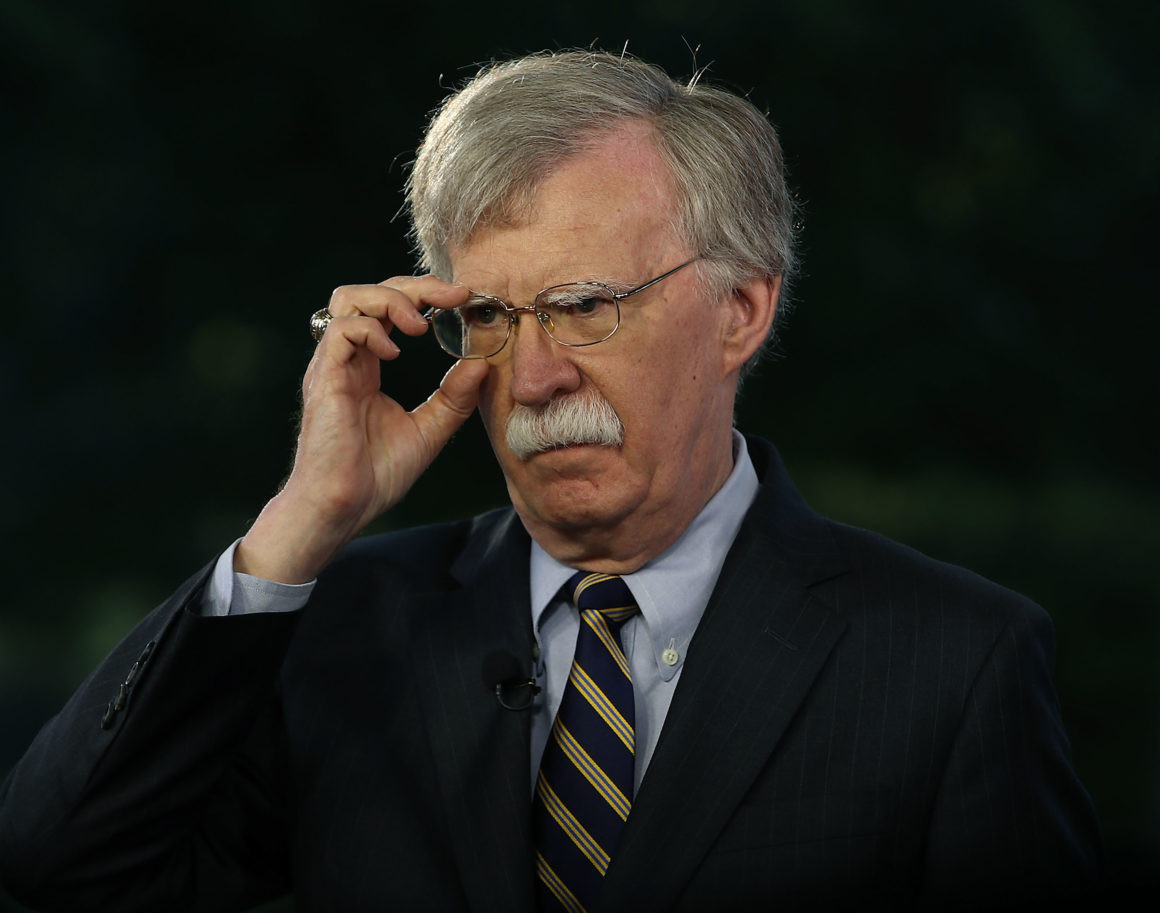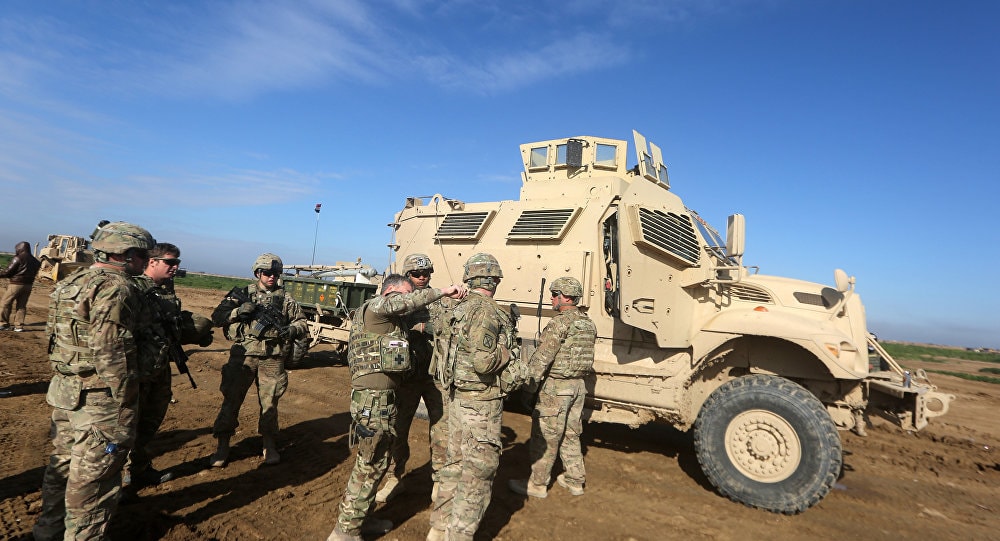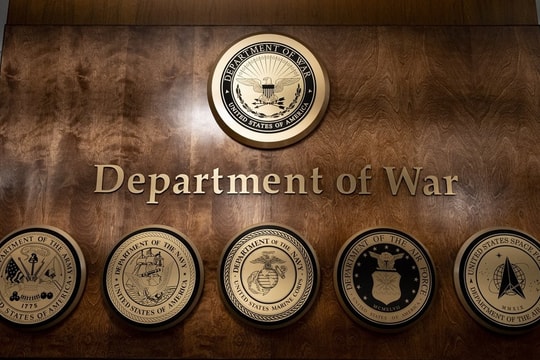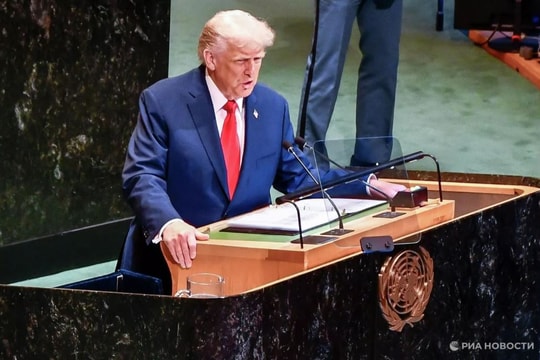US Strategy with Syria: Let Go but Not Give Up?
(Baonghean) - After US President Donald Trump's surprise announcement of withdrawing troops from Syria more than 2 weeks ago, it seems that US officials are trying to reassure allies that the US "gives up but does not abandon" Syria. National Security Advisor John Bolton's 4-day trip to Israel and Türkiye is said to have the same purpose.
Efforts to reassure allies
So far, the US withdrawal from Syria as announced by President Donald Trump is still the "dominating" topic on Washington's agenda.
This decision is considered “inspirational” by the White House boss, because top officials of the Department of Defense from the Secretary, to the Chief of Staff and some other generals did not agree with this plan. They expressed their opposition to the President with their resignation letters.
 |
| Mr. John Bolton warned the Syrian government not to consider the US decision to withdraw troops as an “invitation” to use chemical weapons. Photo: Getty. Photo: Politico |
The remaining officials are busy trying to make the plan that Mr. Trump proposed as reasonable as possible. However, so far, the steps of the US withdrawal from Syria are still unclear.
The withdrawal of 2,000 US troops from Syria was scheduled to be completed within 30 days, according to an earlier order. However, two days ago, a senior US State Department official said “there is still no timetable for the withdrawal of troops”.
While the US withdrawal from Syria remains “ambiguous”, Washington’s allies are understandably uneasy and confused. Israel is the country most concerned about the US plan.
Tel Aviv is worried that its regional rival Iran will expand its presence in Syria after the US withdrawal and the possibility that President Bashar al-Assad, an ally of Tehran, will resume power across the country.
Therefore, during his visit to Israel starting on January 4, US National Security Advisor John Bolton wanted to listen to Israel's opinions and concerns about US President Donald Trump's decision to withdraw troops from Syria, as well as reaffirm the US policy of "ensuring Israel's security is the top priority".
A US administration official said Mr. Bolton would convey the message that the United States would strongly support Israeli airstrikes against Iranian targets in Syria.
For Türkiye, President Tayip Erdogan previously pledged to his US counterpart “to eradicate what is left of IS in Syria and Iraq”. This commitment was supported by the US President.
However, what the US is most concerned about is the fate of the Kurds in Syria - a force that the US has long supported. That is part of the reason Mr. John Bolton chose Türkiye as the next stop after Israel.
The visit is considered a last-ditch effort by the US to avoid a massacre of the Kurds by Ankara. In addition, the US President's desire for Türkiye to "take over" the fight against IS in Syria and the region will also be an important agenda item that Mr. Bolton wants to discuss with Turkish authorities, before Ankara turns to "shake hands" with Russia to create a new alliance here.
In general, this time, advisor John Bolton's mission is not only to reassure allies about President Donald Trump's recent decisions, but also to clarify the extent of coordination with allies such as Turkey and Israel to ensure US interests without harming their security or that of US partners in Syria.
Let go but not abandon
It can be said that the US withdrawal plan from Syria still raises many questions from the public. If this plan is implemented as initially announced by President Donald Trump, it could be a major turning point on the Syrian battlefield as well as in the US's grand strategy in the Middle East.
Therefore, whether Mr. Trump’s statement was an “improvised decision” or a calculated move is still a headache for observers. However, it seems that after that unexpected statement, US officials and those under Mr. Trump are trying to “explain” to allies and the world that the US “gives up but does not abandon Syria.”
This was clearly seen when, on his way to Israel, US national security advisor John Bolton declared: "The US has absolutely not changed its stance against the Syrian government's use of chemical weapons and has also absolutely not changed its stance that any chemical weapons attack will be met with a heavy response, as the US has done twice before."
This statement clearly affirms that whether or not the US withdraws its troops, the country will still be involved in Syria when necessary. In other words, Washington's general policy on Syria will hardly change.
 |
| US military forces in Syria. Photo: AFP |
Other US administration officials are also trying to persuade President Donald Trump to change his mind in one way or another. For example, Senator Lindsey Graham met with the President at the White House.
After this meeting, Mr. Graham wrote on Twitter: "President Trump will ensure that troops will only withdraw from Syria when IS is completely defeated, when Iran cannot replace the US in Syria, and when allied Kurdish forces are protected."
That means the repatriation of US troops in Syria will not happen overnight. According to some experts, this plan may take several months, or even a year, but basically, the US will not completely abandon its involvement in Syria, even in the post-IS period.
In the immediate future, both the Pentagon and the State Department will certainly have to coordinate more closely with the White House on how to make the withdrawal successful without affecting long-standing US interests.
Therefore, after National Security Advisor John Bolton's visit to Israel and Türkiye, US Secretary of State Mike Pompeo also visited eight Middle Eastern countries in an effort to outline a clearer and more unified strategy for this important geopolitical region./.








